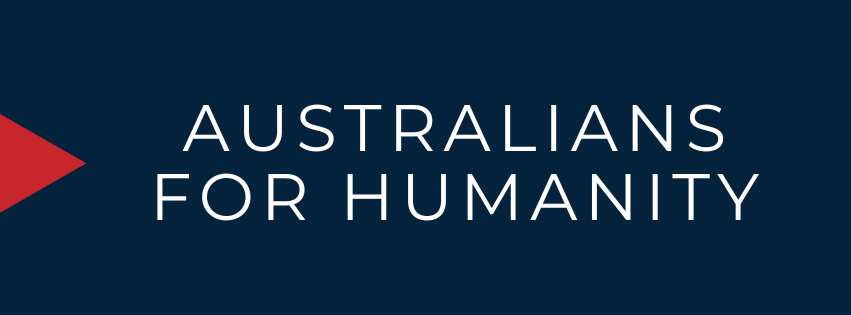The future of Palestine: What Australia must do
October 27, 2025
Responding to continuing slaughter in Gaza is a test of Australian politicians and the government’s courage.
A century of Western nations’ complicity in the colonisation of Palestine has been distinguished by a lack of courage, each chance to be courageous replaced by cowardice, by cruelty, by total indifference to the rules of international law.
On both sides of the Atlantic and in Australia, the Zionist lobby had journalists, religious leaders and politicians of every persuasion under its boot. To always support Israeli domination of Palestinians, prominent professionals and politicians were bullied, intimidated and frightened against defending the human rights of Palestinians.
Learning from Ali Kazak
One Australian citizen did stem the tide. The late Ali Kazak, the first Palestinian ambassador to Australia, always spoke out. An example to the rest of us, he was courageous. His courage should influence responses to the urgent question about the future of Palestine and what Australia must do.
As long ago as 1987, Ali addressed the National Press Club and asked, “How many more Palestinians must be imprisoned, expelled from their land and massacred before Palestinian national rights are acknowledged and consummated in an independent sovereign state?”
Almost four decades later, Ali had to witness the slaughter, in The Lancet’s judgment, of at least half a million Palestinians, mostly women and children, and in a genocide which he had predicted. He had tried to warn, always with his sense of a common humanity. In his daily blog Don’t say you didn’t know, he explained, “Unlike the Zionists, we (the Palestinians) do not mean inflicting tragedy on anyone.”
Just before his death only a few months ago, he marshalled sufficient courage to encourage others to be hopeful, even optimistic. He wrote, “It is only a matter of time before this racist, colonial Zionist ideology is defeated, as all similar ideologies have been throughout history.”
In deliberations about Palestine’s future, a generous dose of the Ali Kazak courage is desperately needed.
Palestinians’ perspectives
Ali educated the Australian public about the plight of his people. He highlighted the priority that Palestinians must not only be heard, but also acknowledged as leaders in their country’s human recovery and physical rebuilding. Agency has to be given to the indigenous people of a country.
Australian Palestinians, who will speak at an “Australians for Humanity” webinar on 31 October, are already insisting that Palestine’s future requires respect for universal human rights and for the rules of international law. One contributor foreshadows, “The future of Palestine and the future of international law are intertwined. If one fails, so does the other.”
An emotional and beautifully poetic vision about a Palestinian future is expressed by Lama Qasem, an Australian citizen originally from the Palestinian city Jenin. ‘That future," she says, “must be about liberation from occupation, an end to suffering, to fragmentation, apartheid, domination, it must be about refugees and diaspora rights to return to belong once more, where memory and imagination rebuild what was torn from a Palestine.”
In his critique of the Trump peace plan, Professor Richard Falk, former UN rapporteur for the Occupied Territories, speaks of the importance of agency and leadership being accorded to Palestinians. In his blog, Global Justice in the 21sr Century, he writes, “To grasp the ironies of the Trump plan, we should imagine our reactions if the Nazi survivors of World War II had been put in charge of the international order, or even of post-war Germany.”
Legal media responses to genocide
History tends to be affected by who tells the best stories, hence the Zionist lobby’s desperate investment in dramatising Israel’s virtues and deriding the character, even the existence, of Palestinians.
With characteristic courage, Ali Kazak challenged what he saw as cowardly one-sidedness in Australian journalists’ accounts of Israeli domination of Palestine. He had written to David Anderson, the managing director of the ABC: “When will the ABC stop dealing with war from an Israeli perspective, adopting all its claims, propaganda and deception without examining their credibility?”
These charges appear to have been largely ignored. On the future of Palestine, journalists and lawyers who will be contributing to the webinar referred to above, are accusing the Australian corporate managed media of being ill-informed, Israel-oriented, fearful and hopelessly biased. For example, current concern about thousands of Palestinians held in Israeli jails, some killed, many tortured, is dwarfed by an avalanche of attention given to the return of a very small number of Israeli hostages held by Hamas.
At long last, courage has been shown by UN international lawyers, Judge Navi Pillay and Australian human rights lawyer Chris Sidoti. Their landmark ruling that Israel has committed genocide in Gaza confirms the observations of an exasperated public of millions around the globe.
The architects of the Genocide Convention were motivated by the hope and principle “never again”. The light of that convention plus the humanitarian vision expressed in the Pillay/Sidoti ruling should affect the ways in which world leaders, in particular Palestinians, build and craft a light on a hill for a new Palestine.
But that task requires courage, not more cowardice, not more compliance with Zionist/US demands, not silence when children plead for help, not claims about common decency when abuses of human rights proceed unhindered.
Citizens concerned about the future of Palestine owe it to the people of that country to show courage. In Australia’s case, they should feel obliged to speak out by following the courageous example of our friend and colleague, the late Ali Kazak.
Join Australians for Humanity at their webinar The Future of Palestine: What Australia must do Friday 31 October 9:00AM - 3:30 PM in two sessions
Click here to register your attendance
The views expressed in this article may or may not reflect those of Pearls and Irritations.


